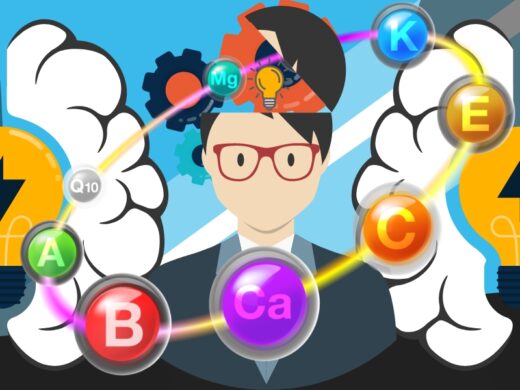
People believe that health is wealth. To maintain a healthy body, people find many ways to maintain it or even to develop it. One of these ways is by taking multivitamins. Most people fail to meet their dietary recommendations because of so many reasons. Taking supplements is one of the easy ways to meet nutritional gaps. It is a dietary supplement either in a liquid form, tablet, capsule, or pill. It intends to provide essential vitamins and minerals to the body. The multivitamin content may vary as well as its dosages.
Researchers reviewed the evidence about supplements, including three very recent studies:
- An analysis of research involving 450,000 people, found that multivitamins did not reduce the risk of heart disease or cancer.
- A study that tracked the mental functioning and multivitamin use of 5,947 men for 12 years found that multivitamins did not reduce the risk for mental declines such as memory loss or slowed-down thinking.
- A study of 1,708 heart attack survivors who took a high-dose multivitamin or placebo for up to 55 months. Rates of later heart attacks, heart surgeries, and deaths were similar in the two groups.
Most recommended multivitamins may include:
- Vitafizz Plus – is a vitamin supplement recommended for an active, dynamic, and healthy lifestyle. It is an effervescent oral tablet. It can provide the body with the needed daily dose of the vitamin necessary for the proper functioning of the human body. Vitafizz Plus has minerals and B vitamins that play a vital role in several biological and physiological processes necessary for a healthy body. Vitafizz Plus contains 100% all-natural ingredients suitable for hypersensitive and diabetic patients. Elderly people and smokers who need higher vitamin supplies may also take this vitamin. Vitafizz Plus is also being used in metabolism. It is vital in teeth and bones. It also helps the nerves and muscle functions.
How Do Multivitamins Increase Brain Function?

Millions of people take a multivitamin each day. Some believe it’s a sort of insurance in case their diet is missing some essential nutrients. Others believe it will ward off disease by boosting immunity, improving brain health, or regulating metabolism. But research on the health benefits of multivitamins has been mixed at best. This year, for example, a leading authority on preventive healthcare, reviewed 90 of the best available studies on supplements and vitamins, concluding the products didn’t protect healthy adults lacking nutritional deficits against cardiovascular disease, cancer, or death from all causes.
Claims that certain supplements can improve brain health are everywhere you look. But sound scientific evidence backing up those claims is much rarer. That’s one reason this new study is important. If confirmed, it means that a safe, widely available, and inexpensive vitamin supplement could improve the quality of life for many millions of aging people.
In the past, claims made by the makers of various supplements and vitamins have gotten far ahead of the science. Studies like this one should help science catch up and sort out which claims are valid.
Can Multivitamins Help with Eye Health?
Vitamins A, C, and E are essential for maintaining good eye health. B vitamins and other nutrients can also be good for the eyes.
Deficiencies in particular vitamins can increase the risk of some eye conditions, such as cataracts, glaucoma, and age-related macular degeneration. Research suggests that some vitamin and mineral supplements may help protect against or slow the development of these conditions.
What Are Some Side Effects Of Multivitamins?

Certain side effects are more likely to occur than others when you’re taking multivitamins. These include:
- Nausea
- Upset stomach
- Diarrhea
- Constipation
These gut-related side effects are generally minor and often temporary. They tend to disappear as your body gets used to taking the multivitamin. Nevertheless, contact your healthcare provider for further assistance if your symptoms persist.
Rarer side effects of multivitamins include:
These typically occur very infrequently, especially if the dosage of nutrients in your multivitamin does not exceed the daily safe upper limit (UL). However, people who combine multivitamins with other supplements or eat significant amounts of fortified foods may exceed the UL for certain nutrients. This may increase their risk of side effects.









